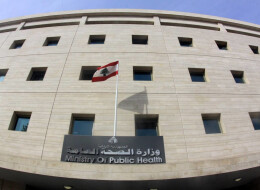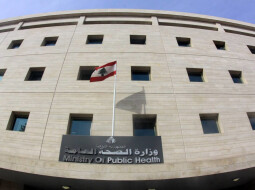
The escalation is the master of the situation in the south, as the recent hours witnessed an unprecedented intensity in Israeli operations against southern areas. Reports indicate 14 consecutive airstrikes conducted by the Israeli military aircraft, described as the most severe since the beginning of the war. They targeted the Wadi Saluki area, accompanied by intense artillery shelling covering most southern towns. Israeli aircraft dropped leaflets over the town of Kfar Kila inciting against "Hezbollah." This was followed by a series of operations by "Hezbollah," targeting Israeli sites and causing direct injuries according to their statements.
From Davos, Prime Minister Najib Mikati stated that "the Gaza ceasefire is the cornerstone for a solution in the region, and if the ceasefire doesn't hold, it will spread like a snowball to all the region's countries.”Emphasizing the need to pressure Israel to halt the escalation.”
He added, "We seek diplomatic solutions, which are the best option, and the U.S. has initiated steps in this direction, and we continue in this pursuit. We abide by international decisions from the 1949 armistice agreement to Resolution 1701. Conversely, Israel must respect and implement these decisions and adhere to international legitimacy."
Politically, attempts to address the presidential file are evident, but it's premature to discuss a ready initiative, while relying on Doha's mediation.
In daily life, the private school teachers' union announced that "tomorrow is a regular teaching day in private schools based on the agreement reached at the Ministry of Education between the union and the Private Educational Institutions Union."
Regionally, on the 102nd day, areas in southern Gaza faced intense Israeli airstrikes hours after Israel declared that the "intensive" phase of operations in the south "will end soon," amid ongoing escalation in the region.
In a move raising questions about its impact on the war, the Israeli army announced the withdrawal of the 36th division from Gaza, including the Golan Brigade and an armored brigade, transitioning from one phase to another. Analysts suggest this withdrawal resulted from U.S. pressure, manifested in the visit of U.S. envoy Amos Hochstein and recent messages conveyed by U.S. Secretary of State Antony Blinken, emphasizing the need to de-escalate in the region.
On the other hand, military experts see this withdrawal as necessary, as no army can sustain prolonged fighting, and these divisions need rest.
Others view the announcement of transitioning between phases as a means to alleviate the impact of not achieving military objectives, preventing defeat from becoming apparent within Israeli society.
Israeli aircraft targeted Khan Yunis overnight, focusing on ground operations and airstrikes in recent weeks. They also reported targeting around a hundred missile launchers in Beit Lahia in northern Gaza, resulting in the killing of "dozens of terrorists."
Meanwhile, Israeli authorities reported missiles launched from Gaza towards southern Israel early morning, with most intercepted by the Iron Dome system above the Ofaqim settlement.
In another development, the European Union added Hamas' political bureau chief in Gaza, Yahya Sinwar, to the "terror" list in connection with the group's attack on southern Israel. Consequently, any assets Sinwar may hold in the EU's 27 member states are frozen, and European citizens are prohibited from engaging in any transactions with him.
Tensions prevail in various regions due to the Gaza war. The Iranian Revolutionary Guard announced missile strikes on "terrorist" targets in Syria and the Kurdistan region of Iraq. The strikes in Iraq targeted an Israeli Mossad center, responding to attacks on "Resistance Axis" leaders.
Meanwhile, Iraqi Hezbollah Brigades stated they targeted the Israeli port of Haifa with an advanced long-range cruise missile a few days ago.
In a separate incident, a Maltese-flagged cargo ship was hit by a missile in the southern Red Sea, with the Houthis claiming responsibility. This comes after the Houthis announced targeting a "U.S. ship" in the Gulf of Aden in response to U.S. and British airstrikes in Yemen last week. In response, the British oil giant Shell suspended all shipments through the Red Sea.
Away from the field, Saudi Foreign Minister Prince Faisal bin Farhan, at the Davos World Economic Forum, mentioned that Saudi Arabia might recognize Israel within a comprehensive settlement leading to the establishment of a Palestinian state. He expressed concern about regional security and freedom of navigation in the Red Sea, emphasizing the priority of de-escalation and calming tensions.
Qatari Prime Minister and Foreign Minister Sheikh Mohammed bin Abdulrahman Al Thani stated that the situation in the Red Sea is the most dangerous, affecting not only the region but the world, stressing that the military option will not resolve the crisis in the Red Sea.
Separately, Iranian Foreign Minister Hossein Amir Abdollahian stated that restoring calm to the region requires urgently ending the war in Gaza.
Internationally, a U.S. military official announced the destruction of four Houthi anti-ship ballistic missiles, indicating they were intended for launch from Houthi-controlled territory in Yemen.
In the U.S. election atmosphere, Donald Trump won the Republican nomination for Iowa's governorship in the first primaries toward the White House elections scheduled in November.
On the Russian front, President Vladimir Putin affirmed that the Ukrainian state could face a "decisive blow" if the conflict prolongs, considering Russian forces entirely in control on the front.
Given the developments in the Red Sea, EU countries gave the green light for a naval mission to protect ships in the Red Sea.









.jpg?w=260&h=190&fit=crop)






